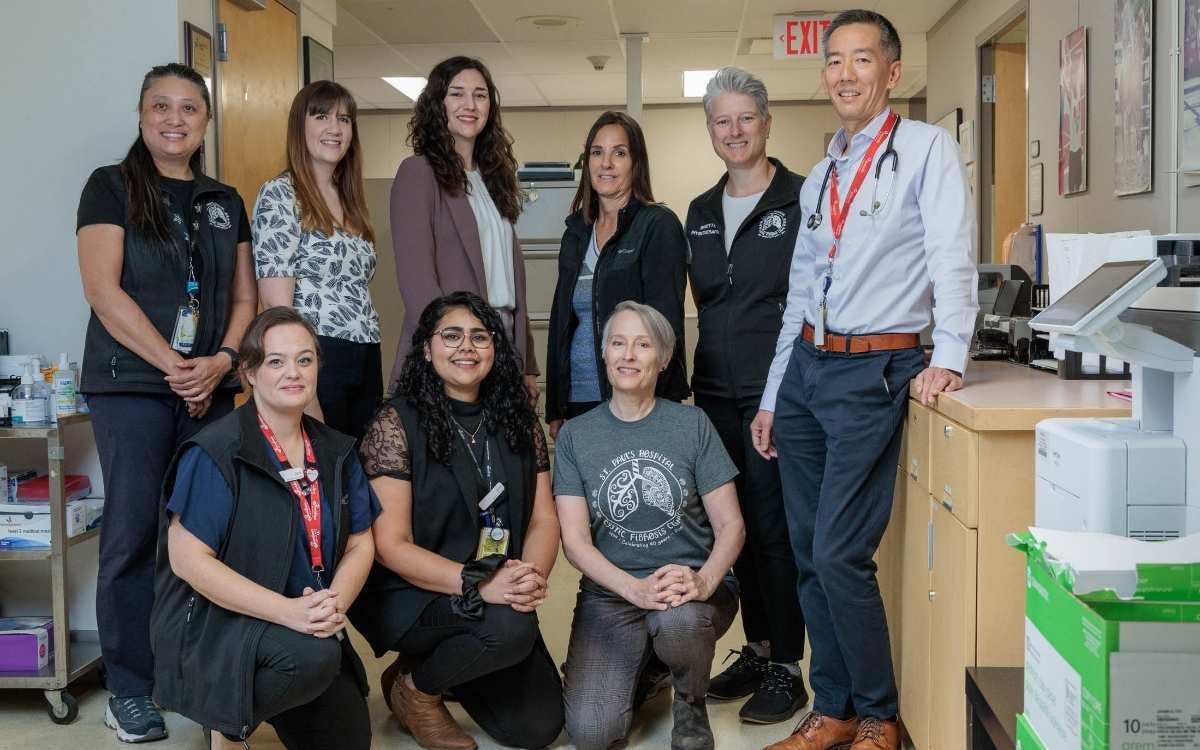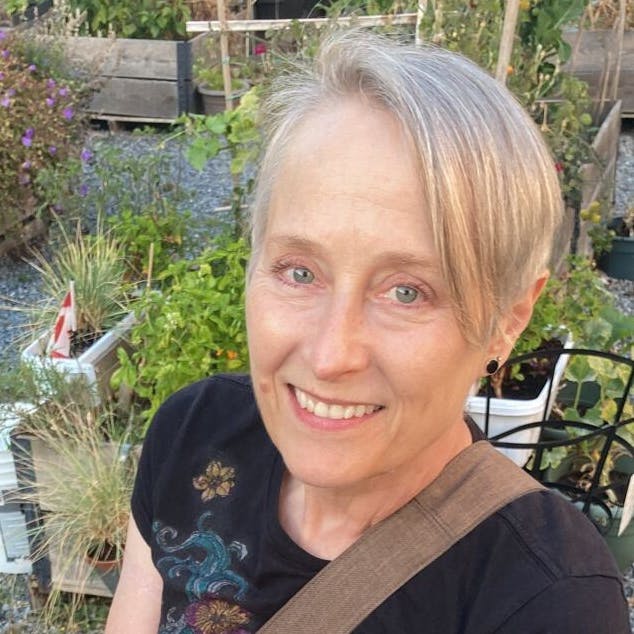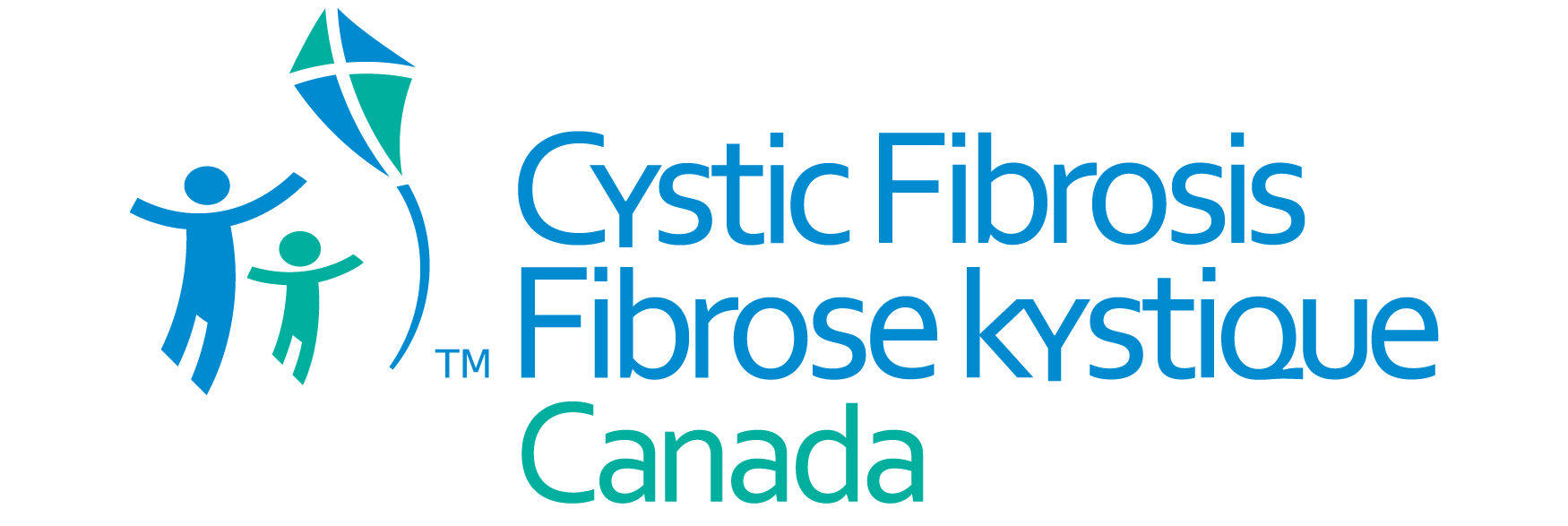“We’re not just treating lungs – we’re supporting the whole person”
October 10, 2025Share this:

At St. Paul’s Hospital in Vancouver, social worker Pat MacDiarmid has spent nearly two decades walking alongside adults with cystic fibrosis (CF), helping them navigate both the emotional and practical realities of living with a chronic illness.
Her work goes far beyond paperwork. A typical day for Pat can have her counselling a patient through grief, helping someone apply for benefits, advocating for equitable access to care, or connecting families with vital community resources. At the heart of it all is one driving purpose: empowering patients to be able to live full, meaningful lives.
“Mental health support is a major part of that mission,” she said. “CF doesn’t just affect the body – it touches every aspect of a person’s life.”
For adults with CF, mental health challenges are common. Many face higher rates of anxiety and depression, while others struggle with medical trauma, survivor’s guilt, or fear about the future.

“CF doesn’t just affect the body – it touches every aspect of a person’s life.”
Recognizing this, Pat and her colleagues at St. Paul’s have worked to build a clinic culture where mental health is openly discussed. Physicians now check in with patients at every appointment, and the entire team feels comfortable and properly trained to start those conversations.
Pat also co-facilitates an eight-week virtual Cognitive Behavioural Therapy group – a pilot program aimed at developing CF-specific mental health programming that could eventually be offered in multiple clinics across Canada.
“Patients tell us it matters when a healthcare worker understands cystic fibrosis,” she said. “It’s not just therapy – it’s therapy that recognizes the unique challenges of living with this specific disease.”
For Pat, the most rewarding part of her job is simple: the people.
She has known some patients since they were teenagers, transferring from pediatric care, and now she sees them thriving in their 30s. Their resilience inspires her daily.
“The patients, my colleagues, the work itself – it’s why I’ve stayed nearly 20 years,” she said.
Pat’s personal connection to her work stretches back further than her own career. When she first told her late mother, a former nurse, she would be working in an adult CF clinic, her mother was astonished.
“She said, ‘But it’s a pediatric disease. There’s an adult clinic?’” Her mother had cared for children with CF in the 1950s, at a time when few lived beyond childhood. “She was amazed to know there were now adults with CF living into their mid 20s, 30s, and beyond.”
Her mother, she said, believed in science, research, and caring for one another. It’s a perspective that continues to fuel Pat’s hope for the future. “A world where every Canadian with CF can live without limits would mean everything to me. We’re closer to that future, but we’re not there yet. Continued fundraising and research are key. Be like my mother – keep giving to causes that make a difference.”
